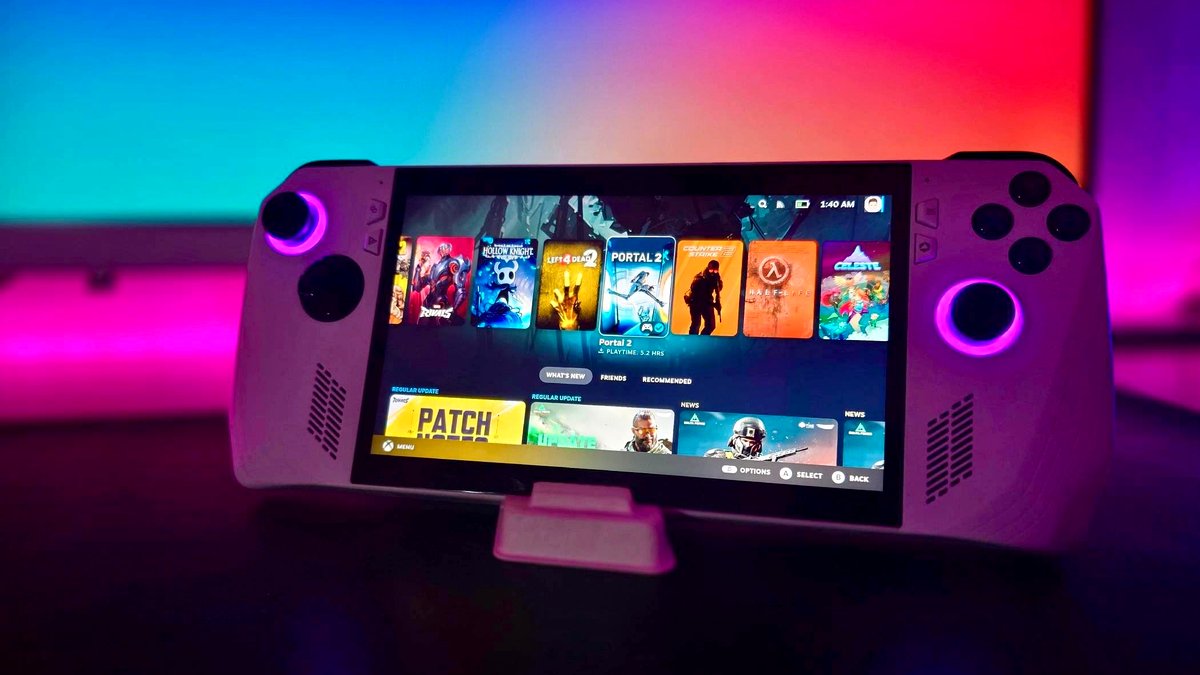The handheld x86 gaming market is no longer just about hardware; it's a war of operating systems. While Windows 11 offers the comfort of familiarity and broad compatibility, Valve's SteamOS is proving to be a formidable contender, often delivering a superior gaming experience. This deep-dive analysis explores the nuances of this OS battle, helping you decide which ecosystem is right for your portable gaming needs.
The Performance Question: Why SteamOS Often Wins
The core of the debate lies in performance. Multiple tech outlets report that SteamOS can outperform Windows 11 on the same hardware in certain gaming scenarios. This isn't just a marginal difference; in some cases, it's the deciding factor between a smooth, playable experience and a stuttering mess.
But why? The answer is specialization. SteamOS is a purpose-built gaming operating system, stripped of the unnecessary overhead that bogs down a general-purpose OS like Windows 11. This lean approach allows SteamOS to dedicate more system resources directly to gaming, resulting in higher and more stable frame rates.
Furthermore, Valve's Proton compatibility layer, which allows Windows games to run on Linux-based SteamOS, has matured significantly. In many cases, Proton is so efficient that it can run games better than they run on their native Windows environment. This is a testament to Valve's commitment to the Steam Deck and the broader SteamOS ecosystem.
The User Experience: A Tale of Two Philosophies
Beyond raw performance, the user experience is a critical differentiator. SteamOS offers a console-like, "pick up and play" experience that is perfectly suited for a handheld device. The interface is clean, intuitive, and easily navigable with a controller. It's a seamless experience that gets you into your games with minimal fuss.
Windows 11, on the other hand, is a desktop OS first and foremost. While it offers unparalleled flexibility, it can be a clunky and frustrating experience on a small touchscreen. Navigating the desktop, launching games from different storefronts, and dealing with system updates can be a chore. Many users report that Windows feels less intuitive on handheld devices compared to dedicated gaming interfaces.
The Compatibility Conundrum: Windows' Last Stand
The one area where Windows 11 still holds a clear advantage is compatibility. If you want to play games from the Epic Games Store, the EA App, or, most importantly, PC Game Pass, Windows is your only option. While there are workarounds to get some of these services running on SteamOS, they can be complex and unreliable.
This is the trade-off that every handheld gamer must consider. Do you prioritize the streamlined, high-performance experience of SteamOS, or do you need the broad compatibility that only Windows can offer?
The Future of Handheld Gaming: A Hybrid Approach?
The ideal solution, of course, would be a hybrid approach that combines the best of both worlds. Imagine a handheld that boots into a console-like interface for gaming but can also switch to a full desktop environment when you need it.
This is essentially what some users are creating for themselves by installing SteamOS on Windows handhelds like the ROG Ally and Legion Go. And it's what manufacturers should be striving for. The recently released Lenovo Legion Go S with SteamOS is a step in the right direction, but the market needs more options.
Conclusion: Which OS is Right for You?
Ultimately, the choice between SteamOS and Windows 11 comes down to your personal priorities.
If you are a dedicated Steam user who values a seamless, high-performance gaming experience above all else, SteamOS is the clear winner. It's the closest you can get to a true console experience on a handheld PC.
If, however, you are a multi-platform gamer who needs access to a wide variety of storefronts and services, particularly PC Game Pass, then Windows 11 is the more practical choice, despite its user experience shortcomings.
The good news is that the competition between these two operating systems is driving innovation across the entire handheld gaming market. As both platforms continue to evolve, we can expect to see even better, more powerful, and more user-friendly handheld gaming PCs in the years to come.
Sources
Note: All sources have been verified for accuracy and editorial standards compliance.
